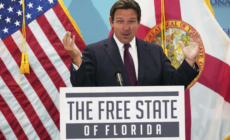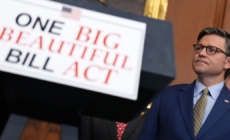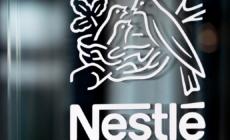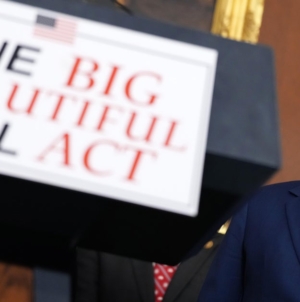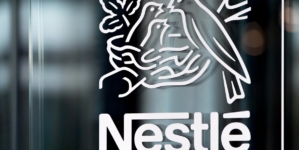-
Florida to Turn Former POW Camp into Migrant Detention Center - 10 mins ago
-
White Stork Population Finally Stabilizes After Previous Decline - 21 mins ago
-
Athletics vs. Tigers Highlights | MLB on FOX - 23 mins ago
-
GOP budget bill could transfer wealth from young Americans to older generations, study finds - 31 mins ago
-
Jeff Bezos and Lauren Sánchez’s relationship history before finding love - 36 mins ago
-
Ecuador recaptures gang leader wanted in the U.S. more than a year after his prison escape - 46 mins ago
-
Ten Years After Landmark Supreme Court Ruling, Is Same-Sex Marriage at Risk? - 50 mins ago
-
Ukraine Sidestepped, Europe’s Defense Back in Spotlight at NATO Summit - 59 mins ago
-
Braves vs. Mets Highlights | MLB on FOX - about 1 hour ago
-
Nestle says it will stop using artificial dyes in U.S. foods, beverages by mid-2026 - about 1 hour ago
Federal Reserve Chair Jerome Powell reiterated his view that the central bank should keep interest rates steady for now, citing inflation risks from U.S. tariffs.
Powell, who made his remarks in prepared testimony Tuesday before the House Committee on Financial Services, has been under pressure from President Trump to cut rates, which would make it cheaper for consumers and businesses to borrow money. At its June 18 meeting, the Fed maintained its benchmark rate in a range of 4.25% to 4.5%, where it’s been parked since December.
In his semiannual testimony, Powell cited uncertainty over the impact of the Trump administration’s tariffs, noting that any resulting inflation “could be short lived” or “could instead be more persistent.” So far, data tracked by the Fed shows that tariffs have had little impact on overall consumer prices.
By contrast, the U.S. labor market is showing signs of a slowdown, prompting some Fed officials to signal it could be time to cut rates. But Powell reiterated his previous stance that it would be premature to push down borrowing costs for consumers and businesses.
“For the time being, we are well positioned to wait to learn more about the likely course of the economy before considering any adjustments to our policy stance,” Powell said in the testimony.
He added that tariffs are likely to weigh on economic activity and that the Federal Reserve’s goal is to ensure that any tariff-related price increases don’t become “an ongoing inflation problem.”
Powell is “unbending under pressure,” noted Sal Guatieri, senior economist at investment advisory firm BMO, in a research note. “Powell needs more data to assess whether tariffs will have a greater negative impact on growth/ labor markets or on inflation, and whether any lift to the latter will be temporary or longer-lasting should it influence expectations.”
